Material issues on operating nuclear power plants
Evaluation of irradiation assisted SCC resistance of stainless steels used for internal structures of nuclear power plants
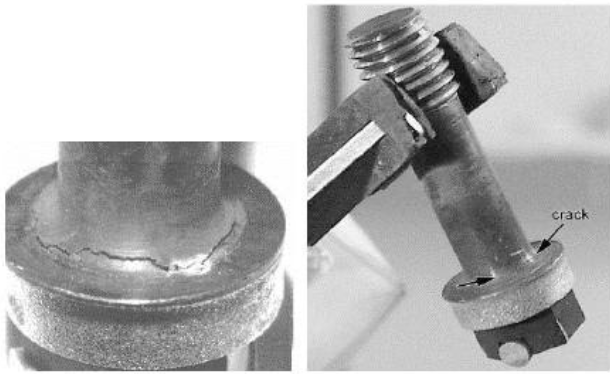
Research Detail
- Simulation of radiation damage by heat treatment and warm rolling
- Measurement and evaluation of SCC growth rate by crack growth rate test with in-situ monitoring system with direct current potential drop method.
Development of PWSCC damage evaluation method and life prediction technology considering the effects of thermal aging and triaxial stress in reactor pressure vessel head penetrations
Evaluation of the effects of radiation damage to SCC resistance of stainless steels
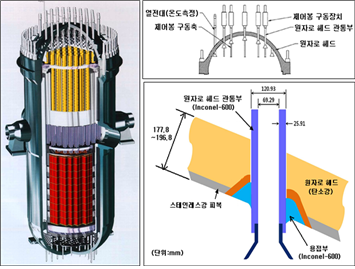
Research Detail
1) Evaluation of the effects of thermal aging and triaxiality on the resistance of the PWSCC initiation
- Slow Strain Rate Test for evaluation of the susceptibility to environmental assisted cracking
2) Improvement of the life model which predicts the life of reactor structure
- By considering the un-considered factors to the life prediction model, the model will be improved
Development of technologies for oxide characterization and material integrity enhancement of zirconium fuel cladding in nuclear power plants
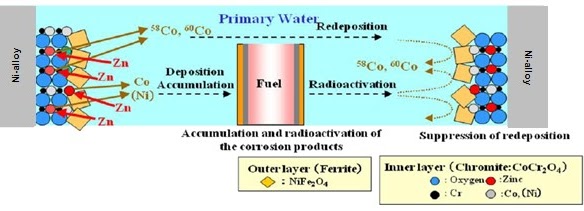
Research Detail
1) Ex-situ oxide analysis of oxidized zirconium alloy
2) In-situ oxide layer analysis of zirconium alloy with varying water chemistry
- In-situ Raman spectroscopy
- In-situ electrochemical impedance spectroscopy
3) Synchrotron X-ray analysis of zirconium oxide layer and water interface
4) Mechanical test of zirconium alloy exposed to varying water chemistry
Development of damage prevention technology for major components of the secondary system in NPP’s using nano-particles

Research Detail
1) Development of nano-particle enhanced coatings for the mitigation of flow-accelerated corrosion in secondary pipe system
2) Electrochemical surface analysis and evaluation of performance of nano-particle enhanced coatings in secondary water chemistry
Material issues on next generation reactors
Life Time Evaluation of Advanced Fuel Cladding and Structural Materials for Next Generation Fast Reactors
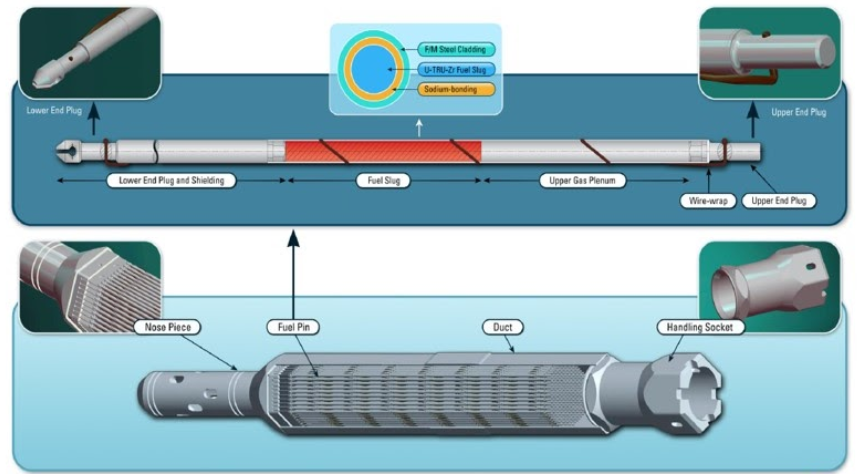
Research Detail
1) Compatibility of cladding candidate materials such as austenitic steel, ferritic-martensitic steel, SiC composite, with high-temperature liquid metals (Na, Pb-Bi, Pb , Ga, Molten salt, etc.,)
2) Development of solid electrolyte based oxygen sensors for high-temperature liquid metal environments (oxygen concentration proportion with corrosion rate)
3) In-situ corrosion kinetics analysis with electrochemical impedance spectroscopy (EIS) of cladding materials with high-temperature liquid metal environment
4) Impurity measurement in liquid metal environment
- Oxygen activity by oxygen sensor and vanadium wire equilibrium technique
- Carbon activity by SS foil equilibrium method
5) Atomistic and molecular modeling of irradiation damage for high-dose of fast neutron environments
Material issues on Research Reactors
Radiation effect of the materials used in research reactors
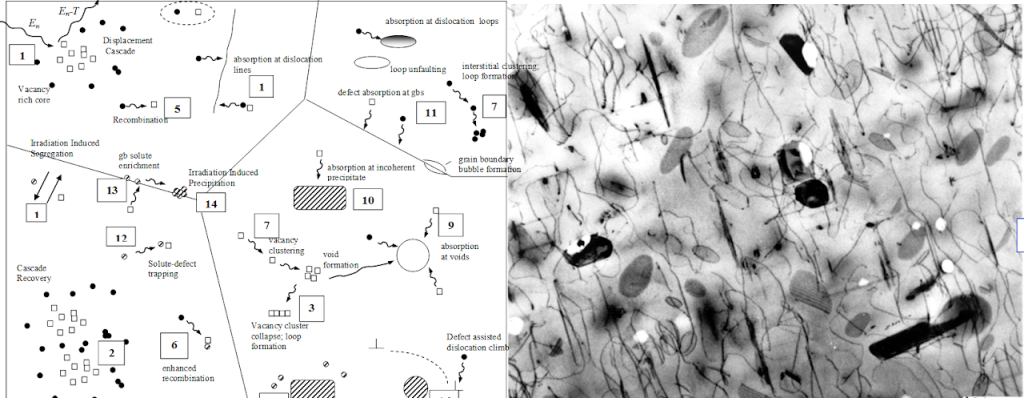
Research Detail
1) Fundamental understanding of radiation effect on the materials by multi-scale simulation
2) Defect flux to sink calculation by radiation damage theory
3) Prediction of microstructure morphology change by multi-scale simulation
4) Mechanical and chemical safety analysis by evolution of the irradiation effect
Alloy design and evaluation of materials for Accident Tolerance Fuel (ATF)
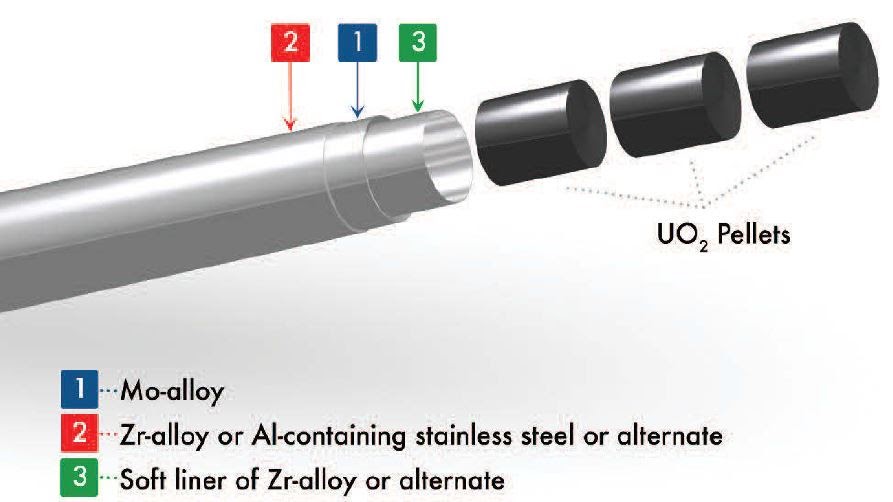
Research Detail
1) Alloy design for the optimizing properties by theoretical approach
- Alloy effect on the swelling, hardening, and corrosion
2) Fundamental understanding of microstructural change in radiation situation
- Sink density change by defect rate equation
- Sink morphology change by MD simulation
Material research with computational modeling method
Multi-scale modelings of materials used in nuclear power plants
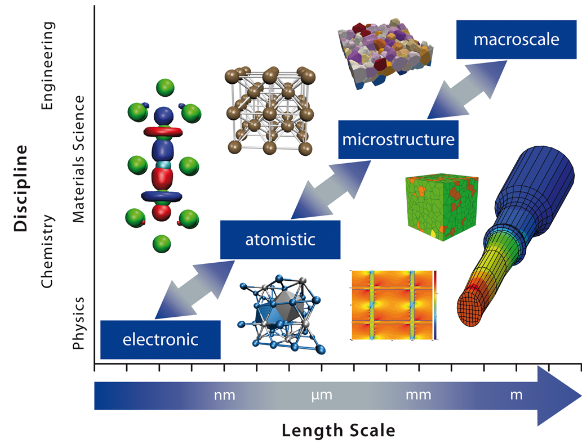
Research Detail
1) Early stage simulation of oxidation of nickel-based alloys
- Ab-initio simulations by using CASTEP
- Analysis of density of states
- Molecular dynamics simulation of oxidation behavior by using LAMMPS
2) Multi-scale modelings of material behaviors in nuclear power plants
- Make interconnection of early stage modeling by Ab-initio to large scale modeling of mechanical properties.